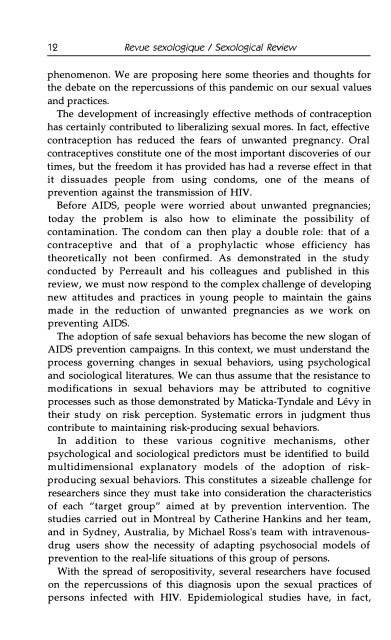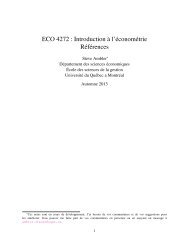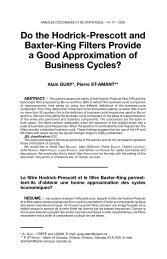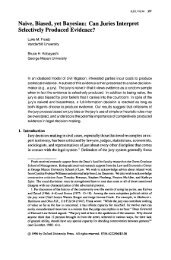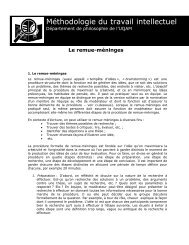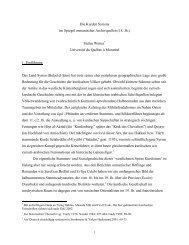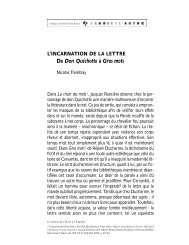Télécharger la revue en format "pdf". - UQAM
Télécharger la revue en format "pdf". - UQAM
Télécharger la revue en format "pdf". - UQAM
You also want an ePaper? Increase the reach of your titles
YUMPU automatically turns print PDFs into web optimized ePapers that Google loves.
12 Revue sexologique / Sexological Review<br />
ph<strong>en</strong>om<strong>en</strong>on. We are proposing here sore theories and thoughts for<br />
the debate on the repercussions of this pandemic on our sexual values<br />
and practices.<br />
The developm<strong>en</strong>t of increasingly effective methods of contraception<br />
has certainly contributed to liberalizing sexual mores. In fact, effective<br />
contraception has reduced the fears of unwanted pregnancy. Oral<br />
contraceptives constitute one of the most important discoveries of our<br />
times, but the freedom it has provided has had a reverse effect in that<br />
it dissuades people from using condoms, one of the me ans of<br />
prev<strong>en</strong>tion against the transmission of HIV.<br />
Before AIDS, people were worried about unwanted pregnancies;<br />
today the problem is also how to eliminate the possibility of<br />
contamination. The condom can th<strong>en</strong> p<strong>la</strong>y a double role: that of a<br />
contraceptive and that of a prophy<strong>la</strong>ctic whose effici<strong>en</strong>cy has<br />
theoretically not be<strong>en</strong> confirmed. As demonstrated in the study<br />
conducted by Perreault and his colleagues and published in this<br />
review, we must now respond to the complex chall<strong>en</strong>ge of developing<br />
new attitudes and practices in young people to main tain the gains<br />
made in the reduction of unwanted pregnancies as we work on<br />
prev<strong>en</strong>ting AIDS.<br />
The adoption of safe sexual behaviors has become the new slogan of<br />
AIDS prev<strong>en</strong>tion campaigns. In this context, we must understand the<br />
process governing changes in sexual behaviors, using psychological<br />
and sociological literatures. We can thus assume that the resistance to<br />
modifications in sexual behaviors may be attributed to cognitive<br />
processes such as those demonstrated by Maticka-Tyndale and Lévy in<br />
their study on risk perception. Systematic errors in judgm<strong>en</strong>t thus<br />
contribute to maintaining risk-producing sexual behaviors.<br />
In addition to these various cognitive mechanisms, other<br />
psychological and sociological predictors must be id<strong>en</strong>tified to build<br />
multidim<strong>en</strong>sional exp<strong>la</strong>natory models of the adoption of risk<br />
producing sexual behaviors. This constitutes a sizeable chall<strong>en</strong>ge for<br />
researchers since they must take into consideration the characteristics<br />
of each "target group" aimed at by prev<strong>en</strong>tion interv<strong>en</strong>tion. The<br />
studies carried out in Montreal by Catherine Hankins and her team,<br />
and in Sydney, Australia, by Michael Ross's team with intrav<strong>en</strong>ous<br />
drug users show the necessity of adapting psychosocial models of<br />
prev<strong>en</strong>tion to the real-life situations of this group of persons.<br />
With the spread of seropositivity, several researchers have focused<br />
on the repercussions of this diagnosis upon the sexual practices of<br />
persons infected with HIV. Epidemiological studies have, in fact,


